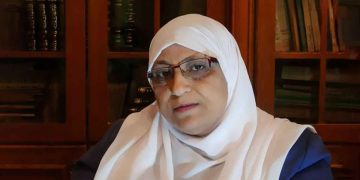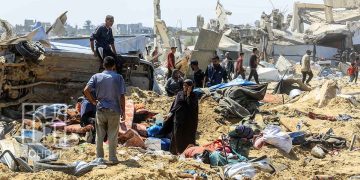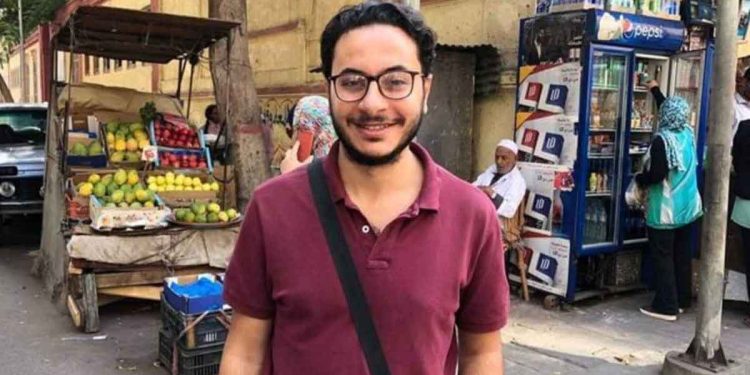Despite receiving a presidential pardon in Republican Decree No. 329 of 2022 about a month ago, the Egyptian authorities banned researcher Ahmed Samir Santawi from traveling from Cairo International Airport.
Santawi, who planned to return to Vienna to complete his master’s degree and carry out his work normally, shared a post on Facebook saying, “banned from travelling”.
On January 23, 2021, Ahmed Samir Santawi, a master’s researcher in anthropology at the Central European University in Vienna (CEU), was arbitrarily arrested for focusing on women’s rights in his academic work. Seven masked and armed policemen raided his house in his absence and summoned him to the National Security Department, without giving any reasons.
In February, Santawi went to the National Security Department and was subjected to enforced disappearance until February 6, 2021. He was beaten, slapped on the face, handcuffed and blindfolded at the Fifth Settlement Police Station, before being presented before the Supreme State Security Prosecution, which accused him of belonging to a terrorist group, spreading false news, and using a social media account to spread false news, which are frequent charges used against hundreds of activists and dissidents.
In a separate session on February 23, 2021, a public prosecutor informed him that he was being interrogated for “financing a terrorist organisation,” based on National Security investigations; however, neither Santawi nor his lawyer were allowed to see these investigations.
On July 4, 2022, an emergency state security misdemeanor court sentenced Santawi to 3 years in prison on charges of spreading false news, after annulling a previous ruling of 4 years in prison.
On July 29, 2022, Abdel Fattah El-Sisi issued a presidential pardon for 8 prisoners who have received a final verdict, including Santawi, journalist Hisham Fouad, and Tariq Al-Nahri, an actor with close relations with the security services.
Santawi went on a hunger strike several times, protesting against his arbitrary detention in very poor and inhumane conditions of detention. He was deprived of communication with his family and deprived of having clothes and personal items for one month, before a family member was finally allowed to visit him for 20 minutes.






























